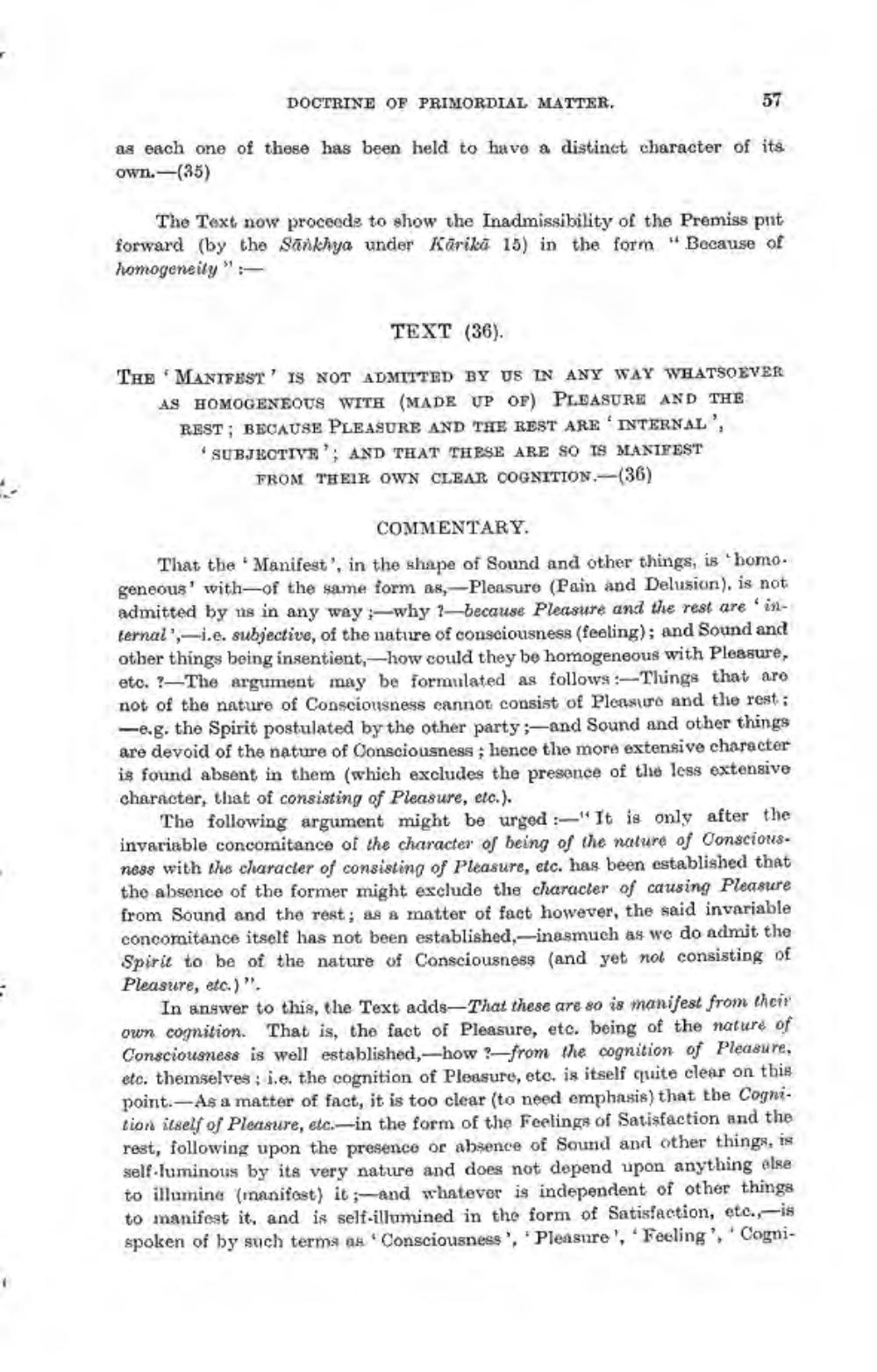________________
DOCTRINE OF PRIMORDIAL MATTER.
as each one of these has been held to have a distinct character of its own.—(35)
The Text now proceed to show the Inadmissibility of the Premiss pnt forward (by the Sankhya under Kārika 15) in the form " Because of homogeneity":
TEXT (36)
THE MANIFEST' IS NOT ADMITTED BY US IN ANY WAY WHATSOEVER
AS HOMOGENEOUS WITA (MADE UP OF) PLEASURE AND THE REST; BECAUSE PLEASURE AND THE REST ARE INTERNAL', SUBJECTIVE'; AND THAT THESE ARE SO IS MANIFEST
FROM THEIR OWN CLEAR COGNITION.-(36)
COMMENTARY. That the Manifest ', in the shape of Sound and other things, is 'homo. geneous' with-of the same form as, Pleasure (Pain and Delusion), is not admitted by ns in any way ;-why 1-because Pleasure and the rest are in fernal',-j.e. subjective, of the nature of consciousness (feeling); and Sound and other things being insentient,-how could they be homogeneous with Pleasure, etc. ?-The argument may be formulated as follows:- Things that aro not of the nature of Consciousness cannot consist of Pleasura and the rest : -e.g. the Spirit postulated by the other party and Sound and other things are devoid of the nature of Consciousness; hence the more extensive character is found absent in them (which excludes the presence of the less extensive character, that of consisting of Pleasure, etc.).
The following argument might be urged :-"It is only after the invariable concomitance of the character of being of the nature of Conscions. ness with this character of consisting of Pleasure, etc. has been established that the absence of the former might exclude the character of causing Pleasure from Sound and the rest, as a matter of fact however, the said invariable concomitance itself has not been established, -inasmuch as we do admit the Spirit to be of the nature of Consciousness and yet not consisting of Pleasure, etc.)".
In answer to this, the Text adds-That these are so is manifest from their own cognition. That is, the fact of Pleasure, etc. being of the nature of Consciousness is well established, -how from the cognition of Pleasure, etc. themselves : i.e. the cognition of Pleasure, eto, is itself quite clear on this point. -As a matter of fact, it is too clear to need emphasis) that the Cogni. tion itself of Pleasure, etc.-in the form of the Feelings of Satisfaction and the rest, following upon the presence or absence of Sound and other things, is self-luminous by its very nature and does not depend upon anything else to illumina (inanifast) it ;-and whatever is independent of other things to manifest it, and is self-illumined in the form of Satisfaction, etc., is spoken of by such terms as Consciousness, Pleasure', 'Feeling', 'Cogni




